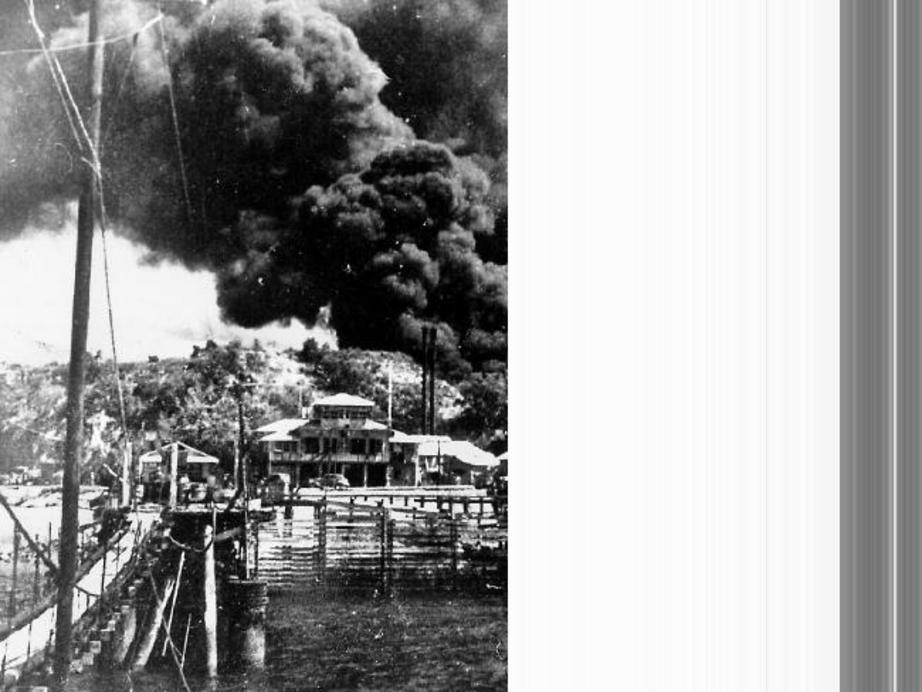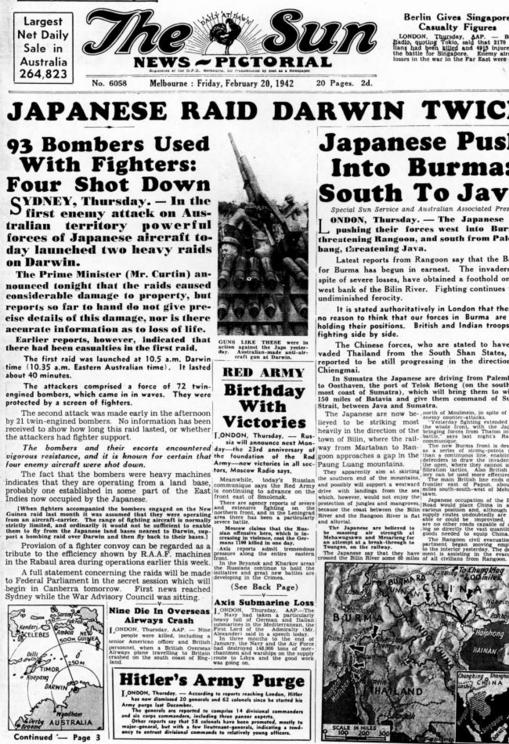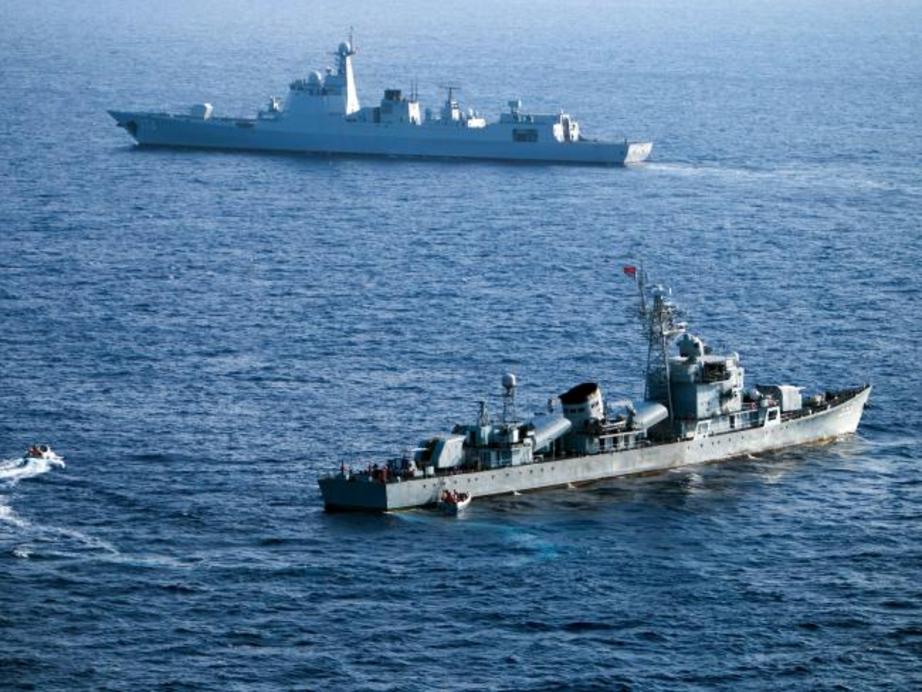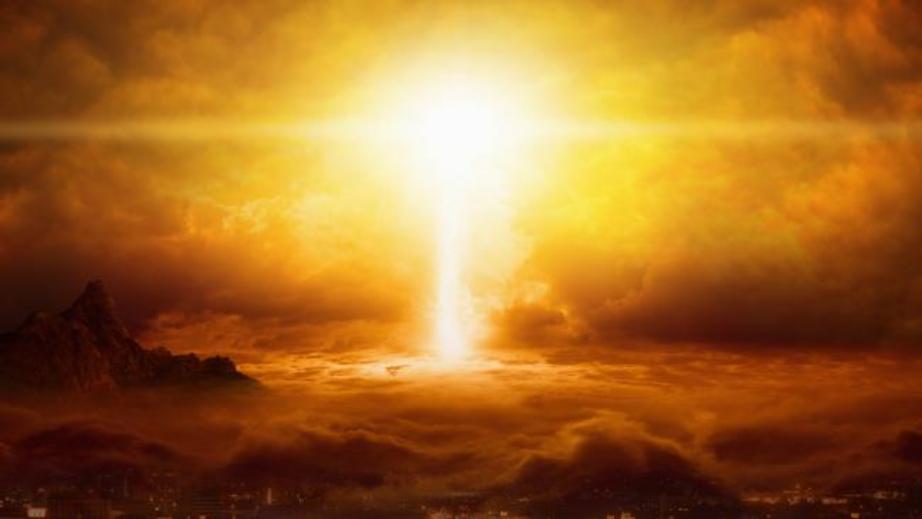Survivalist and doomsday prepper James Wesley Rawles says Darwin is the best place in Australia to survive an apocalypse
When the Japanese attacked Sydney Harbour in May, 1942, we had no idea just how close we came to invasion as their subs lurked in wait underneath our shores.
In February of that year, the Japanese had bombed Darwin and Broome in a succession of raids — their largest attack since Pearl Harbor a few months earlier.
Despite losing 900 lives, 77 aircraft and several ships, no cities in Australia fell to Japan.
But one “survivalist” claims we’re at risk of another attack and says we should be moving to ironically — Darwin — for our best chance of survival.
James Wesley, Rawles, (his full name includes a comma) a former US Army Intelligence officer, author of best-selling survivalist novels, and responsible for the migration of thousands of “preppers” to a rural section of northwest America called the “American Redoubt”, says Australia will soon see itself in a similar situation — but this time with China.
Australia’s relationship with China is growing increasingly complex. China is our biggest trading partner, but politically we are likely to support the United States in opposing the rising superpower’s claims to the South China Sea. So far, Australia’s involvement in the conflict has been relatively low-risk; they don’t see our military as particularly provocative.
But as China’s naval forces grow, so does the threat to Australia, according to Rawles.
“I look at Australia as both a nation of great strength and great vulnerability,” he told news.com.au.
“You came very close in World War II to being invaded. If the Japanese really wanted Australia, they could have taken it, they actually had the manpower, they had you outgunned.
“I’m sure it would have been retaken but what would have happened in the meantime would have been devastating.
“In the next fifty years you might be in a very similar situation with China.”

Bombing of Darwin in 1942 by Japanese planes. Source: News Limited

February 20, 1942: The front page of 'The Sun' newspaper. World War II.Source: Supplied
Rawles, who in 2011, wrote a call to arms on his blog, survivalblog.com, urging people “vote with their feet” and move to a rural section of north west America for their best chance of post-apocalyptic survival, said the problem China faces is that despite employing a huge army — it has no transport.
“They have a huge army, but have no correspondingly large navy. But eventually, when they have the transport, I have a feeling they’re going to push very hard with submarines, they will be a power to be reckoned with.
“They’re already building artificial islands, and that’s putting great pressure on the Philippines as well.”
It comes as Taiwan announced its first ever plan to build eight submarines, unlike its previous routine of buying second hand ones from the United States.
China regards Taiwan as a breakaway province that will eventually be part of the country again. However many Taiwanese want to be a separate nation, with its defence minister claiming more than 1000 Chinese missiles are pointed towards the region.

Crew members of China's South Sea Fleet taking part in a drill in the Xisha Islands, or the Paracel Islands in the South China Sea.Source: AFP
Rawles said that despite the location of Darwin, situated on the Timor Sea and in proximity to South East Asia, it was the perfect place for Australians to flock in the event of an apocalyptic type event.
“The culpable region, would be Darwin. You have plenty of rainfall (enough resources) but you have a very light population density overall,” he said.
He said he had studied Australia after using the country as a setting for one of his novels, Expatriates.
“After the United States suffers a major socio-economic meltdown, a power vacuum sweeps the globe,” a description of the book reads.
“A newly-radicalised Islamic government has risen in Indonesia and — after invading the Philippines, East Timor, and Papua New Guinea — sets its sights on Australia. No longer protected by American military interests, Australia must repel an invasion alone.”
Rawles said the novel is a “survival manual dressed as fiction” which formed the basis for his opinion on Darwin.
“Up in the wet would probably be the most sustainable place to be, even though the tropical climate has its own set of problems.
“On balance, because of a light population density, its remoteness from major population centres on the east coast, Darwin would probably be the safest place.
“Without water, you’re a refugee. You can improvise a lot of things, but you can’t improvise water. You can store a lot of things, but water is bulky, you can’t store a couple years worth of water, certainly not in the context of a suburban home.
“Outside of water, everything else is secondary from a survival standpoint.”
For the rest of this article please use the source link below.

